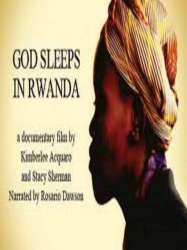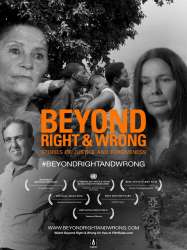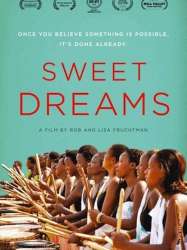L'Afrique en morceaux is a french film of genre Documentary
L'Afrique en morceaux (2000)

If you like this film, let us know!
- Infos
- Casting
- Technical infos
- Photos
- Videos
- Film quotes
- Characters
- Music
- Awards
L'Afrique en morceaux is a 2000 documentary film directed by Jihan El-Tahri.
^ "L'Afrique en morceaux". africultures.com. Retrieved 9 March 2012.
^ Zegna-Rata, Olivier (23 February 2001). "L’Afrique en morceaux : une leçon d’histoire immédiate". Afrik (in French). Retrieved March 10, 2012.
Synopsis
April, 1994. Genocide in Rwanda. 800,000 dead. A catastrophe that upset the balance in the entire region. The Great Lakes region of Africa ended the year with a bloodbath. This documentary shows the intrigues, the dramatic effects, the treasons, the vengeances that prevailed over those years and whose only goal was to maintain or increase each faction’s area of influence. In just ten years, the population saw all their hopes vanish: The dream of an Africa in control of its own destiny, alimentary self-sufficiency, the end of interethnic conflicts.Comments
Leave comment :
Suggestions of similar film to L'Afrique en morceaux
There are 8968 with the same cinematographic genres, 11441 films with the same themes (including 16 films with the same 9 themes than L'Afrique en morceaux), to have finally 70 suggestions of similar films.If you liked L'Afrique en morceaux, you will probably like those similar films :
 , 1h31
, 1h31Directed by Peter Raymont
Origin Canada
Genres Documentary
Themes Films set in Africa, Films about racism, Documentary films about racism, Documentary films about law, Documentary films about war, Documentary films about historical events, Documentaire sur une personnalité, Documentary films about politics, Political films
Rating80%





Between April and June 1994, an estimated 800,000 Rwandans were killed in 100 days. Most of the dead were Tutsis by the hands of the Hutus. The genocide began when Rwandan president Juvenal Habyarimana's plane was shot down above Kigali airport on April 6, 1994.

God Sleeps in Rwanda (2005)
, 28minutesGenres Documentary
Themes Films set in Africa, Films about racism, Documentary films about racism, Documentary films about law, Documentary films about war, Documentary films about historical events, Documentaire sur une personnalité, Documentary films about politics, Political films
Actors Rosario Dawson
Rating71%





 , 1h20
, 1h20Directed by Roger Spottiswoode
Origin USA
Genres Documentary
Themes Films set in Africa, Films about racism, Films about religion, Films about terrorism, Documentary films about racism, Documentary films about law, Documentary films about war, Documentary films about historical events, Documentaire sur une personnalité, Documentary films about politics, Documentary films about religion, Political films, Films about Jews and Judaism
Rating71%






Flower in the Gun Barrel (2008)
Origin USA
Genres Documentary
Themes Films set in Africa, Films about racism, Documentary films about racism, Documentary films about law, Documentary films about war, Documentary films about historical events, Documentaire sur une personnalité, Documentary films about politics, Political films
Rating80%





To a large extent, the film consists of interviews with genocide survivors, many of whom were children in 1994. In all, over thirty survivors, perpetrators, and experts were interviewed for the film. In these interviews, the survivors discuss what it means to be a Rwandan and to live next door to people who killed their families. The survivors describe how they deal with their country's request that they forgive one another and move on, so that Rwanda can rebuild and unify itself. Perpetrators' views illuminate the madness that seized the culture in 1994; exploring the experience of apologizing to victims, and examining what it is like to be looked at as a murderer in Rwandan society.

My Neighbor, My Killer (2009)
, 1h20Directed by Anne Aghion
Origin France
Genres Documentary
Themes Films set in Africa, Films about racism, Documentary films about racism, Documentary films about law, Documentary films about war, Documentary films about historical events, Documentaire sur une personnalité, Documentary films about politics, Political films
Rating75%






Umurage (2002)
, 52minutesOrigin Espagne
Genres Documentary
Themes Films set in Africa, Films about racism, Documentary films about racism, Documentary films about law, Documentary films about war, Documentary films about historical events, Documentaire sur une personnalité, Documentary films about politics, Political films
In Rwanda, a hundred members of the Ukuri Kuganze Association, made up in its majority by survivors of the genocide, and a few of their executioners, freed after having confessed and asked for forgiveness in 2003, meet at a reinsertion center. These executioners are going home, in most cases to the same places where they carried out their crimes, and will have to "face" their victims and ask their forgiveness. In 1994, over a space of just one hundred days, almost a million people were murdered, that makes 10,000 dead per day.

Sweet Dreams (2012)
, 1h26Directed by Lisa Fruchtman
Origin USA
Genres Drama, Documentary, Historical, Musical
Themes Films set in Africa, Films about music and musicians, Films about racism, Documentary films about racism, Documentary films about law, Documentary films about war, Documentary films about historical events, Documentary films about music and musicians, Documentaire sur une personnalité, Documentary films about politics, Musical films, Political films
Rating76%






Screamers (2006)
, 1h29Origin USA
Genres Documentary
Themes Films set in Africa, Films about racism, Documentary films about racism, Documentary films about law, Documentary films about war, Documentary films about historical events, Documentaire sur une personnalité, Documentary films about politics, Political films
Actors Shavo Odadjian
Rating58%





 , 1h34
, 1h34Origin USA
Genres Documentary
Themes Films set in Africa, Films about racism, Documentary films about racism, Documentary films about law, Documentary films about war, Documentary films about historical events, Documentaire sur une personnalité, Documentary films about politics, Political films
Actors Helen Mirren
Rating75%






As We Forgive (2008)
Genres Documentary
Themes Films set in Africa, Films about racism, Documentary films about racism, Documentary films about law, Documentary films about war, Documentary films about historical events, Documentaire sur une personnalité, Documentary films about politics, Political films
The film tells the story of two Rwandan women who come face-to-face with the neighbors who slaughtered their families during the 1994 genocide, and their personal journeys toward forgiveness. Featuring in-depth interviews with both survivors and murderers, As We Forgive provides an intimate, first-hand view of the encounters between genocide perpetrators and their victims’ families.
 Connection
Connection